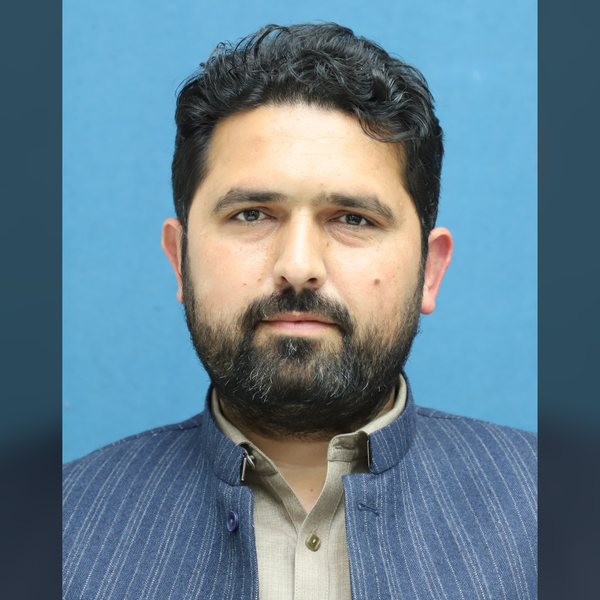‘I want to play’: Young thalassemia patient’s struggle reveals hidden cost of cousin marriages
Over 70% of inherited disorders in KP are tied to cousin marriages, a new genetic study reveals
Kamran Ali
Correspondent Nukta
Kamran Ali, a seasoned journalist from Khyber Pakhtunkhwa, Pakistan, has a decade of experience covering terrorism, human rights, politics, economy, climate change, culture, and sports. With an MS in Media Studies, he has worked across print, radio, TV, and digital media, producing investigative reports and co-hosting shows that highlight critical issues.
Sixteen-year-old Mohammad Shayan longs to run, play, and laugh like any other boy his age. But his frail body betrays him, leaving him too weak even to step outside.
"I want to play, to enjoy life, but there’s no strength left in me. I can’t do anything. My days are spent either at home or in hospitals, fighting for my health," he says, his voice trembling, eyes glistening with unshed tears.
Yet, amid the exhaustion and despair, Shayan clings to one unwavering belief: "I will recover one day."
Diagnosed with thalassemia at just three months old, Shayan now requires blood transfusions three times a month to stay alive.
His father, Waris Khan, a 40-year-old rickshaw driver in Peshawar, carries a heavy burden of guilt. He had married his cousin—a common practice in their community—without undergoing any premarital genetic screening.
"Back then, no one knew cousin marriages could be so dangerous. The idea of medical testing before marriage didn’t even exist for us," Khan told Nukta, his voice weighed down by remorse.
The cost has already been devastating: the family lost another son to the same disease.
But some lessons were learned. "Now, we get tested before every pregnancy," Khan said. "After that, we were blessed with a daughter, completely healthy."
70% of genetic disorders linked to cousin marriages
A groundbreaking study by researchers at Islamia College University, Peshawar, has revealed a disturbing trend: nearly 71% of inherited disorders in Khyber Pakhtunkhwa (KP) are attributed to autosomal recessive mutations, which are closely linked to cousin marriages.
The research, which analyzed genetic disorder cases across the province, found that 70.8% were caused by homozygous recessive mutations, meaning the child inherited the same defective gene from both parents.
Dr Qaiser Zaman, a genetic disorders researcher and assistant professor at Government Postgraduate College Dargai, Malakand, says such mutations are far more common in communities where cousin marriages are prevalent.
Key genetic disorder findings
- Autosomal recessive (AR) disorders: 70.8%
- Autosomal dominant (AD) disorders: 14.6%
- X-linked disorders (hemizygous): 8.3%
- Compound heterozygous mutations: 6.3%
Human toll of inherited diseases
The study also revealed the heartbreaking human cost, with skin conditions (19%) and vision impairments (18%) being the most common genetic issues, nearly one in five cases falling into these categories.
Dr Musharraf Jelani, associate professor at Islamia College University and co-author of the study, said 70% of these conditions were directly linked to consanguineous marriages.
"A simple pre-marital blood test could prevent most of these tragedies," Dr Jelani told Nukta. "Families continue to suffer needlessly when science offers solutions."
Prevalence of disorders in KP:
- Skin conditions: 19%
- Vision impairments: 18%
- Intellectual disabilities: 16%
- Hearing loss: 9.6%
- Physical disabilities: 9%
- Bone deformities: 8%
- Dwarfism: 7.7%
- Epilepsy: 6%
- Muscular dystrophy: 3.3%
"These aren't just statistics—they represent children who could have been healthy," Dr Zaman emphasized. "When will we stop letting tradition dictate tragedy?"
Law under fire for limited scope
Khyber Pakhtunkhwa’s 2009 Preventive Health Act mandates premarital thalassemia screening, but experts say it falls far short of addressing the province’s genetic crisis.
"The law only requires testing for thalassemia and mandates that nikah registrars obtain test reports," said Dr Jelani. "But it fails to cover the full range of hereditary diseases linked to cousin marriages."
He called for urgent reforms to expand mandatory screening and ensure its implementation. "This is the only way to protect future generations."
Dr Kashmala Shah, medical officer at Hamza Foundation Welfare Hospital, also urged couples in consanguineous marriages to undergo prenatal testing by the third month of pregnancy.
"If the fetus shows severe genetic abnormalities, termination is both legally allowed and Islamically permitted," Dr Shah said, citing a fatwa by Mufti Taqi Usmani.
"This isn’t about sin—it’s about preventing lifelong suffering."











Comments
See what people are discussing